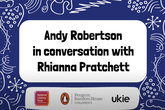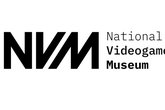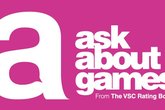Video games and literacy

Video games are a significant cultural and creative force, often involving a number of art forms, including narrative, design and audio composition.
The way that digital technology can be used to support and enrich the literacy lives of children and young people is an integral part of our work, especially as we discuss what does the future of literacy look like and explore ways to grow literacy skills in a way that is culturally relevant to the next generation. So we have started to explore the impact of video games on children and young people’s literacy attitudes, behaviours and skills.
What are some of the benefits of playing video games?
Our independent research has found that there are many benefits to playing video games which support children and young people's literacy and can provide a route into reading for pleasure, creative writing and improve confidence in their communication skills.
Here are some of the benefits we outline in our research report:
Video games can...
-
Give young people a route into reading and writing
-
Improve confidence in young people's reading skills
-
Immerse young people in stories
-
Support positive communication with family and friends
One young person said: “Video games help me stay in touch with my cousin as he lives hundreds of miles away.”
-
Increase empathy and support wellbeing
As one young person explained: “Playing games can help you create your own imaginary world and understand other people’s view of life.”
-
Engage boys and reluctant readers with literacy
In fact, 3 in 4 (73%) young people who don’t enjoy reading said playing video games helps them feel more part of a story than reading a book-based text.
Research
Explore our research on the relationship between young people's video game playing and literacy engagement.
-
This report outlines findings from our survey exploring young people’s literacy-related interactions both within, and in relation to, video games.Learn more
-
We explored the relationship between young people's video game playing and literacy engagement.Learn more
-
Young people and parents told us about playing video games, literacy and wellbeing during the COVID-19 lockdown.Learn more
Want to find out more about video games?
Our friends in the industry have a wealth of advice, support and resources available for young people, parents and teachers who want to find out more about video games.
-
Check out the National Videogame Museum's resources to help young people who want to learn about, talk about and create video games.Learn at home with the NVM
-
AskAboutGames answers questions about video game age ratings, provides advice on how to play games safely and offers families tips to get the most out of the games they enjoy together.Learn more
-
Ukie’s Digital Schoolhouse together with Nintendo UK offers free adaptable resources that are mapped to the Computing curriculum to engage pupils aged 5-16 with play-based learning.Learn more









